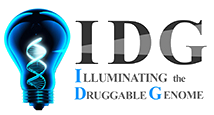Drug results: 16
| betamethasone benzoate |
|
|
| betamethasone butyrate propionate | a topical corticosteroid |
|
| betamethasone acibutate |
|
|
| betamethasone phosphate | phosphate ester of betamethasone; RN given refers to the di-Na salt (11beta,16beta)-isomer; structure in Negwer,5th ed, 4975 |
|
| betamethasone | A glucocorticoid given orally, parenterally, by local injection, by inhalation, or applied topically in the management of various disorders in which corticosteroids are indicated. Its lack of mineralocorticoid properties makes betamethasone particularly suitable for treating cerebral edema and congenital adrenal hyperplasia. (From Martindale, The Extra Pharmacopoeia, 30th ed, p724) |
|
| betamethasone acetate | A glucocorticoid given orally, parenterally, by local injection, by inhalation, or applied topically in the management of various disorders in which corticosteroids are indicated. Its lack of mineralocorticoid properties makes betamethasone particularly suitable for treating cerebral edema and congenital adrenal hyperplasia. (From Martindale, The Extra Pharmacopoeia, 30th ed, p724) |
|
| betamethasone valerate | Betamethasone valerate has anti-inflammatory, antipruritic, and vasoconstrictive properties. The mechanism of the anti-inflammatory activity of the topical steroids, in general, is unclear. However, corticosteroids are thought to act by the induction of phospholipase A2 inhibitory proteins, collectively called lipocortins. It is postulated that these proteins control the biosynthesis of potent mediators of inflammation such as prostaglandins and leukotrienes by inhibiting the release of their common precursor arachidonic acid. Arachidonic acid is released from membrane phospholipids by phospholipase A2. |
|
| betamethasone dipropionate | A glucocorticoid given orally, parenterally, by local injection, by inhalation, or applied topically in the management of various disorders in which corticosteroids are indicated. Its lack of mineralocorticoid properties makes betamethasone particularly suitable for treating cerebral edema and congenital adrenal hyperplasia. (From Martindale, The Extra Pharmacopoeia, 30th ed, p724) |
|
| clotrimazole | An imidazole derivative with a broad spectrum of antimycotic activity. It inhibits biosynthesis of the sterol ergostol, an important component of fungal CELL MEMBRANES. Its action leads to increased membrane permeability and apparent disruption of enzyme systems bound to the membrane. |
|
| calcipotriene | a topical dermatologic for the treatment of moderate plaque psoriasis |
|
| minoxidil | A potent direct-acting peripheral vasodilator (VASODILATOR AGENTS) that reduces peripheral resistance and produces a fall in BLOOD PRESSURE. (From Martindale, The Extra Pharmacopoeia, 30th ed, p371) |
|
| nicotinamide | An important compound functioning as a component of the coenzyme NAD. Its primary significance is in the prevention and/or cure of blacktongue and PELLAGRA. Most animals cannot manufacture this compound in amounts sufficient to prevent nutritional deficiency and it therefore must be supplemented through dietary intake. |
|
| gentamicin | A complex of closely related aminoglycosides obtained from MICROMONOSPORA purpurea and related species. They are broad-spectrum antibiotics, but may cause ear and kidney damage. They act to inhibit PROTEIN BIOSYNTHESIS. | |
| pentoxifylline | A METHYLXANTHINE derivative that inhibits phosphodiesterase and affects blood rheology. It improves blood flow by increasing erythrocyte and leukocyte flexibility. It also inhibits platelet aggregation. Pentoxifylline modulates immunologic activity by stimulating cytokine production. |
|
| tretinoin | An important regulator of GENE EXPRESSION during growth and development, and in NEOPLASMS. Tretinoin, also known as retinoic acid and derived from maternal VITAMIN A, is essential for normal GROWTH; and EMBRYONIC DEVELOPMENT. An excess of tretinoin can be teratogenic. It is used in the treatment of PSORIASIS; ACNE VULGARIS; and several other SKIN DISEASES. It has also been approved for use in promyelocytic leukemia (LEUKEMIA, PROMYELOCYTIC, ACUTE). |
|
| hydroquinone | skin depigmentation agent |
|



